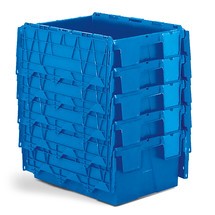Plastic Reduction Tips for Procurement Teams
Audit your supply chain for single-use plastic packaging and quantify the amounts
Identify what comes in single-use packaging. Establish the weights of the packaging and the quantities bought over a year- you can do this by asking your suppliers who will have it for their PRN data.
Prioritise the items to tackle first
People may be asking you to remove plastic bottles when your biggest issue may be the polystyrene packaging protecting your IT equipment. From your audit identify the biggest players and the easiest to change- the low hanging fruit.
Look for removing or reusable options
Before switching to another material, which will have it’s own environmental issues, look at how this item can be removed or changed for a reusable e.g. reusable crates from regular suppliers, reusable milk bottles, a water fountain instead of bottled water.
Ask suppliers for recyclable options
If reusable isn’t an option, ask your supplier for a recyclable option that you have a waste stream for.e.g. Cardboard.
NB: If you are considering compostable food packaging, check if you or your customers will have a food waste collection that can accept these (there are about 20 in the country). Check out our blog about compostables to find out why these don’t just compost in the general waste bin or if they become litter.
Ask for recycled plastic packaging
If plastic is the only option, ask for rPet or rHDPE that are made from recycled content. This will be create demand in the UK plastic recycling market and reducing the need for plastics to be exported.
Ask for a take-back option
If all else fails, ask suppliers to take back the materials so they have to take responsibility for the end-of-life scenario. They may have enough volume for a specialist process or be forced to organise one and/or rethink their packaging choices.


10% of all online courses go to grassroots charities.
20% of all consultancy and bespoke workshops go for rewilding.
50 free places are awarded to campaigners from underrepresented communities each year.

